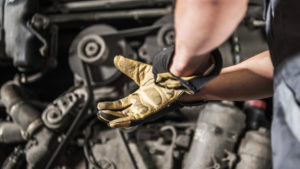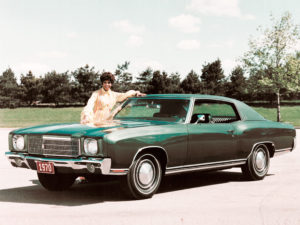On his show “Let’s Talk Wheels,” Mike Herzing answers questions from listeners who write in. While their specific situation might not match yours exactly, there’s still plenty to be learned from their experiences — and his expertise.
Shawna writes: I can’t afford a new SUV, but my old one is on its last legs. I heard you talk about lease returns being much cheaper. But aren’t lease or rental cars trashed? I don’t want something that has led a hard life. Do some cars hold their value more than others?
Mike Herzing: That’s a great question. It’s common knowledge that a vehicle loses value as soon as you drive it home from the dealership. Most vehicles lose 10-15 percent of their value the first year, and 10 percent (on average) each year thereafter. So if you buy a vehicle coming off of a lease, much of that depreciation has been paid. Also, most lease return vehicles are two to three years old and usually have less than 36,000 miles. That means that they should be covered by the original factory warranty and may be eligible for a certified pre-owned (CPO). warranty, which provides the best coverage for the best value.
There are several vehicles that are known to have higher than normal residual value, and two are the Jeep Wrangler and the Toyota Tacoma. Sometimes it is a better value to buy them new and drive them for several years. In my opinion, the best value is to buy a good vehicle and keep it as long as you can.
Landon writes: I have a 2016 BMW that seems to want to track to the right. The tires have been balanced and computer aligned twice. The car has 54,000 miles, and the tires only have 3,000 miles on them. What else could it be?
MH:
Sometimes a tire (or tires) can experience what is called a “radial tire pull.” This is a manufacturing defect that isn’t apparent until driving on it. Have your shop switch the tires from right to left and see if the pull changes directions. If it does then have them perform a road force variation (RFV) test to see which tire is the problem.
Johnathan writes: I am looking at buying a truck with only 21,000 miles. The seller says that the truck has been salvaged and rebuilt. Is that why it seems like a great deal? I am assuming it is the hail damage on the entire truck that caused it — it has little dents all over it. What are the problems with buying a rebuilt truck? And what is the difference between a salvage car and a rebuilt car?
MH: What you have found is a vehicle that has been previously damaged to a point that the insurance company has declared it a total loss. The seller you found most likely purchased it at auction with a salvage title. After repairs are made, the owner or dealership must have the car inspected by the state and show proof that repairs were done before a rebuilt title can be issued. Was the hail damage the only problem? You never really know. Also, because of liability, many insurance companies will not fully insure a rebuilt vehicle. Yes, the price will be considerably lower than a non-rebuilt vehicle, but is it really worth it?
For more tips from Mike, visit LetsTalkWheels.com. Be sure to subscribe to the new “Let’s Talk Wheels” podcast on iTunes, Spotify, or Google Play.








